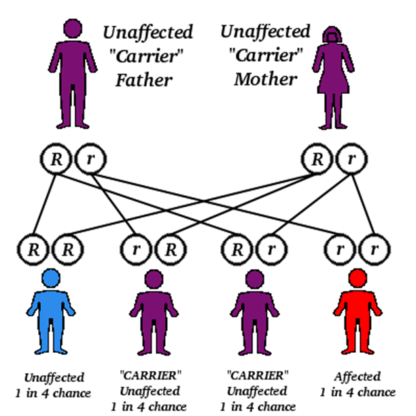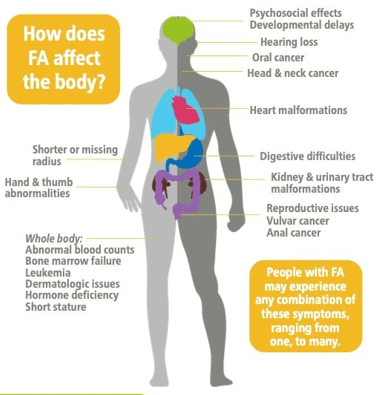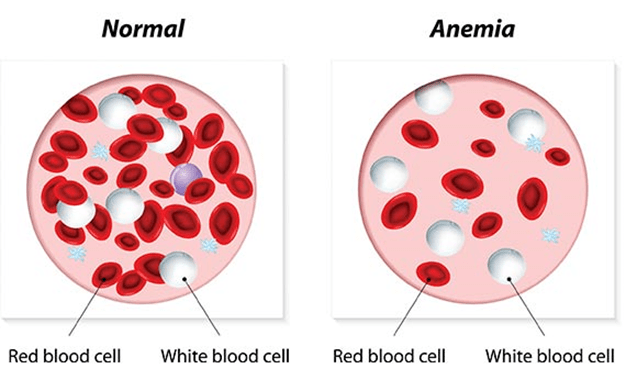Fanconi anemia (FA) is a rare genetic blood disorder that affects your bone marrow and other organs. FA patients are more likely to develop blood problems and various malignancies. FA may also result in physical changes that alter people’s organs and looks. Fanconi anemia may have a variety of effects on your or your child’s body:
Fanconi anemia is an uncommon condition. It affects 1 in every 160,000 persons on the planet. FA is most often diagnosed in youth or early adulthood. Anemia is a typical FA symptom. Fatigue, having trouble collecting their breath, headaches, and pale skin tone are other symptoms.



Fanconi anemia is a genetic condition caused by inherited mutations (single changes in genetic code) in a collection of protein-coding genes. FA genes defend us against DNA damage that occurs throughout our lives. When FA genes are mutated, proteins that normally repair regular DNA damage become ineffective and cannot repair damaged DNA. There is a 25% risk that a kid born to parents with faulty FA genes would have symptoms. Parents with aberrant FA genes have a 25% probability of not passing those defective genes on to their children.
Healthcare practitioners may use the following tests to identify blood diseases, blood malignancies, and solid tumors:
Typically, healthcare practitioners concentrate on therapies to control FA-related blood problems, such as:
The Fanconi Anemia patients face many complications during their life which include low Hemoglobin symptoms like tiredness, easy fatigue, Bleeding (nose bleeds, bleeding in brain, etc.), recurrent infections (Pneumonia, Fungal infections), different types of cancers including blood cancers are also common in Fanconi Anemia patients. Many such kids can have kidney problems and skeletal deformities. These complications of the disease make difficult for the patient and family to cope with and live normal life.
Fanconi anemia is a genetic condition. That implies you will not be able to lower your chances of acquiring FA. However, if you have a family history of FA, you may consider genetic testing to see whether you are a carrier. Medical problems may not affect everyone who has FA. Similarly, not everyone who has FA passes it on to their offspring. Genetic testing can assist you in gaining a better understanding of your issue.
| Cookie | Duration | Description |
|---|---|---|
| cookielawinfo-checkbox-analytics | 11 months | This cookie is set by GDPR Cookie Consent plugin. The cookie is used to store the user consent for the cookies in the category "Analytics". |
| cookielawinfo-checkbox-functional | 11 months | The cookie is set by GDPR cookie consent to record the user consent for the cookies in the category "Functional". |
| cookielawinfo-checkbox-necessary | 11 months | This cookie is set by GDPR Cookie Consent plugin. The cookies is used to store the user consent for the cookies in the category "Necessary". |
| cookielawinfo-checkbox-others | 11 months | This cookie is set by GDPR Cookie Consent plugin. The cookie is used to store the user consent for the cookies in the category "Other. |
| cookielawinfo-checkbox-performance | 11 months | This cookie is set by GDPR Cookie Consent plugin. The cookie is used to store the user consent for the cookies in the category "Performance". |
| viewed_cookie_policy | 11 months | The cookie is set by the GDPR Cookie Consent plugin and is used to store whether or not user has consented to the use of cookies. It does not store any personal data. |